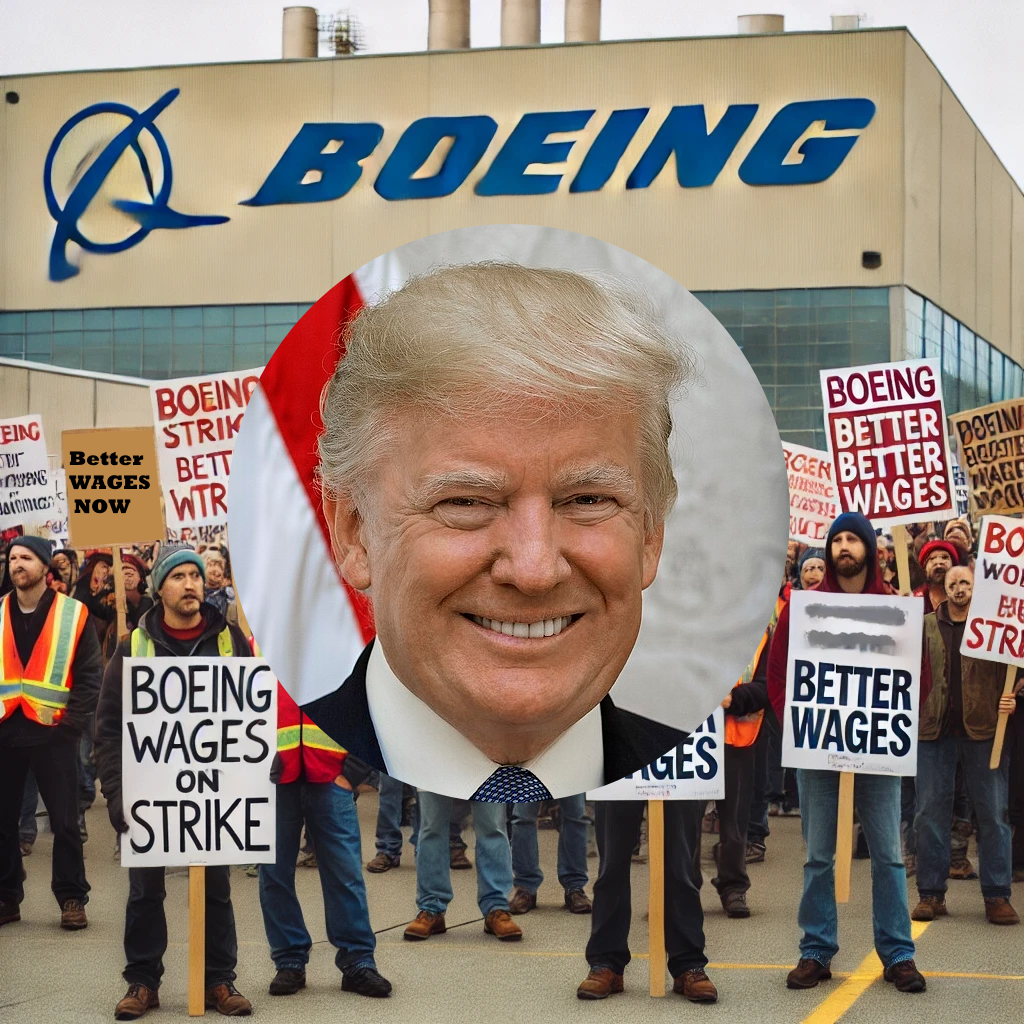
More than 30,000 Boeing workers in Seattle and Portland went on strike, rejecting a proposed 25% pay increase over four years. The workers, represented by the International Association of Machinists and Aerospace Workers (IAM), overwhelmingly rejected the deal, with 95% voting against it, demanding higher wages and better benefits. Boeing, already struggling with financial losses and safety scandals, now faces further disruptions. However, this strike represents a broader issue: the dismantling of labor unions and workers’ rights in the U.S., especially under Republican leadership, which has favored policies that benefit the wealthiest 1% while undermining collective bargaining power. Boeing Stock was down 4% on the news.
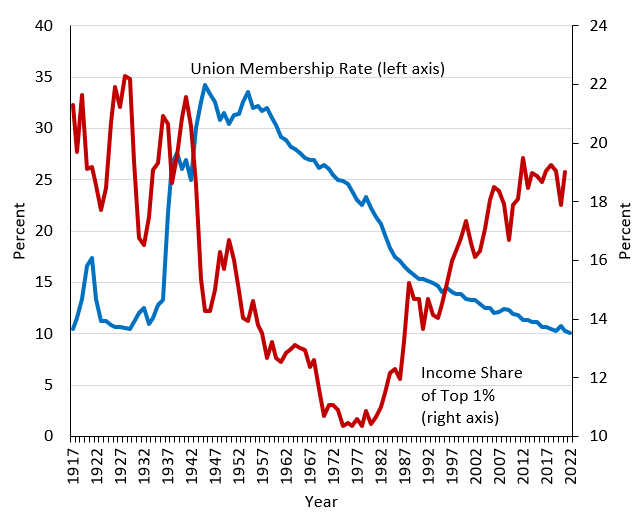
A Broader Labor Crisis: Declining Union Membership and Stagnant Wages
Union membership has steadily declined since the 1950s when nearly a third of the private-sector workforce was unionized. Today, only about 6% of private-sector workers are union members, largely due to political and legislative attacks on unions from conservative and Republican lawmakers. Right-to-work laws, which allow workers to opt out of union membership while still benefiting from union contracts, have proliferated in Republican-led states. These laws significantly weaken unions by reducing their bargaining power, which has had far-reaching consequences for workers.
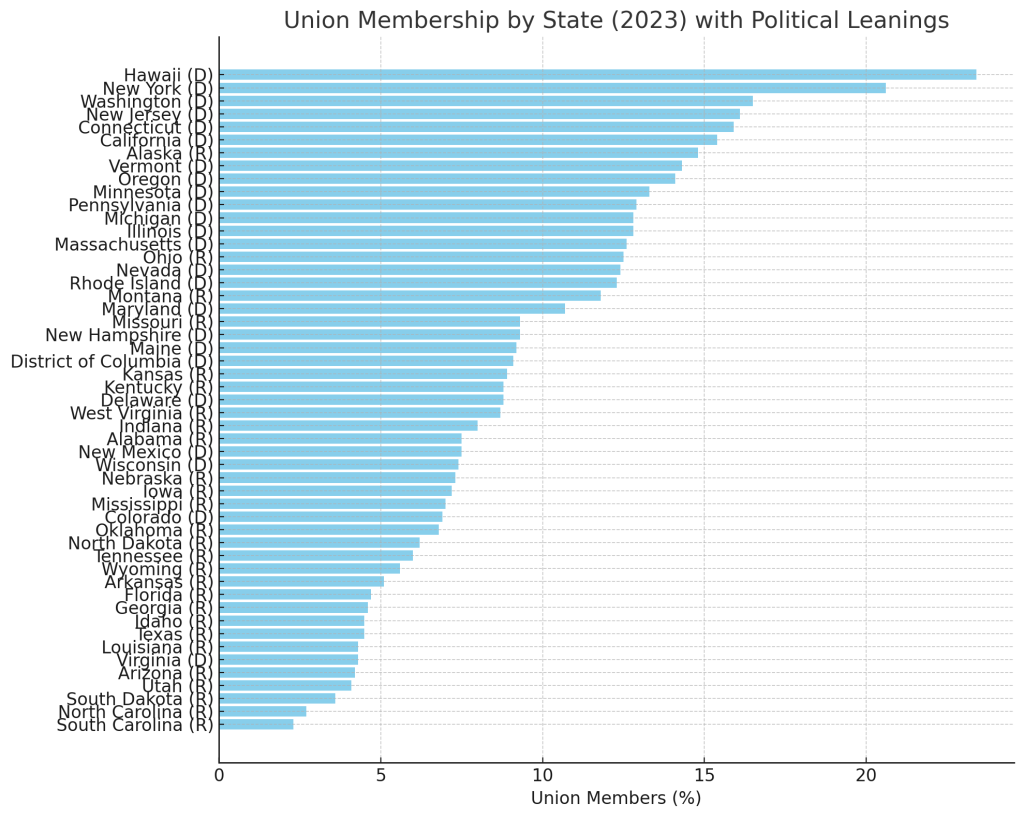
Union membership by state clearly shows that states with higher union membership, such as Hawaii, New York, and Washington, are overwhelmingly Democratic-leaning. In contrast, Republican-led states, particularly those with right-to-work laws, have some of the lowest union membership rates. The erosion of union power in these Republican strongholds has led to significant wage stagnation and growing income inequality.
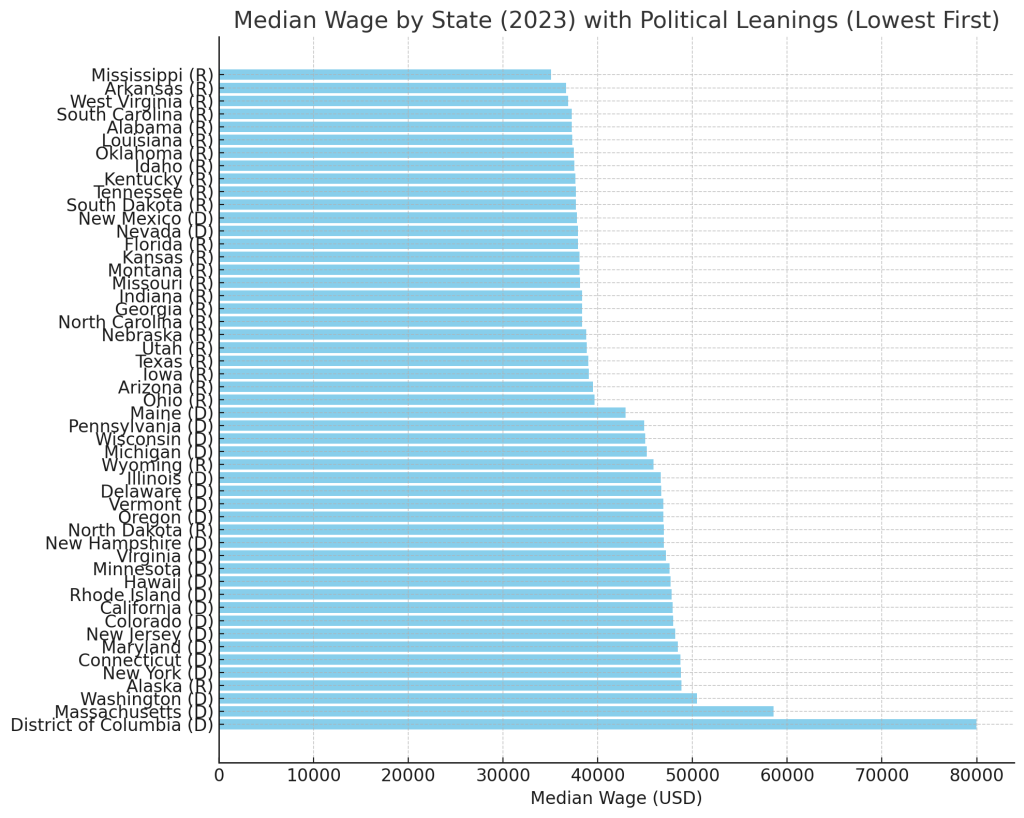
The Wage Gap Between Unionized and Non-Unionized States
Analyzing median wages across states underscores the stark difference between states with strong unions and those with weaker or nonexistent unions. States like the District of Columbia, Massachusetts, and Washington—where union membership is relatively high—boast some of the highest median wages in the country. Meanwhile, states with right-to-work laws and low union membership, such as Mississippi, Arkansas, and Alabama, consistently rank at the bottom in terms of pay.
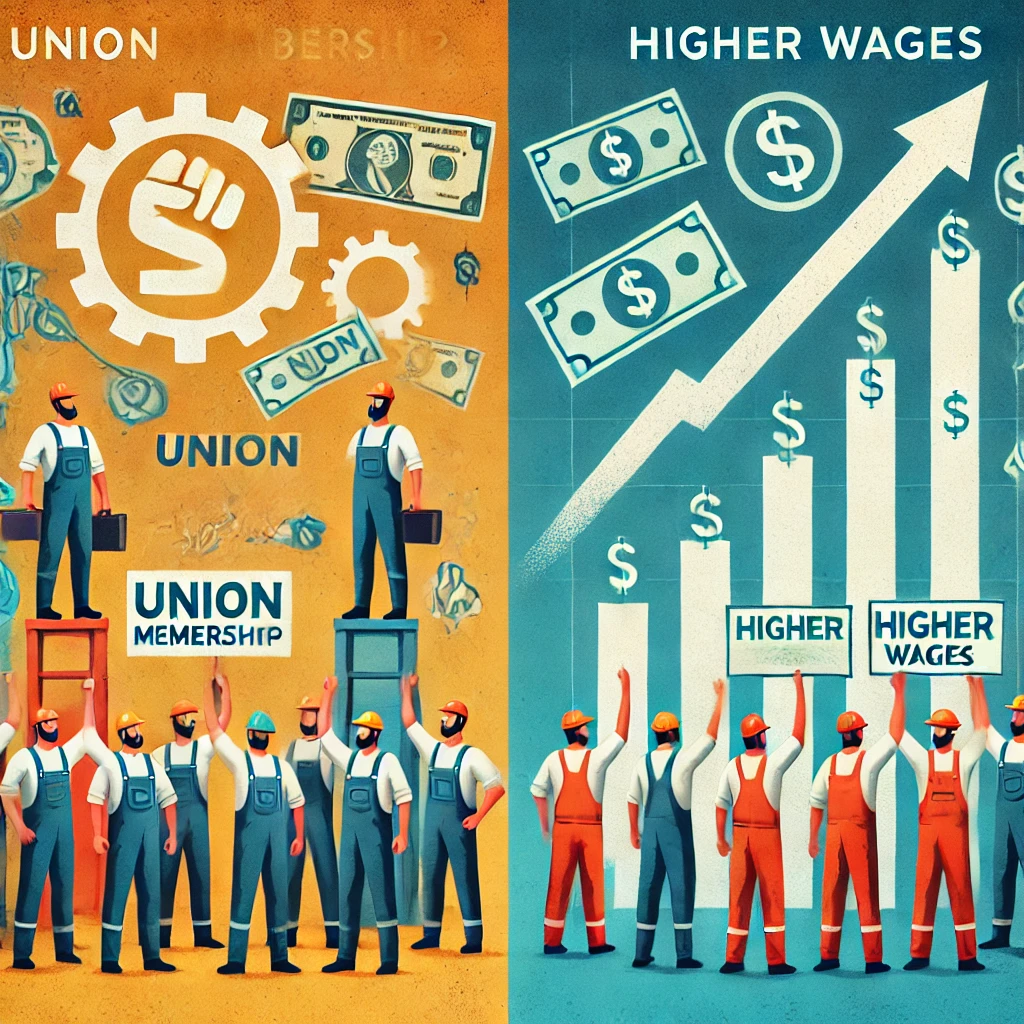
This correlation between union membership and higher wages is undeniable. In Democratic-leaning, union-strong states, workers enjoy better pay and benefits. In contrast, Republican-led states with weak or non-existent union protections suffer from lower wages. The GOP’s decades-long campaign to weaken unions has shifted economic power away from workers and toward corporations and the wealthiest Americans, exacerbating income inequality.
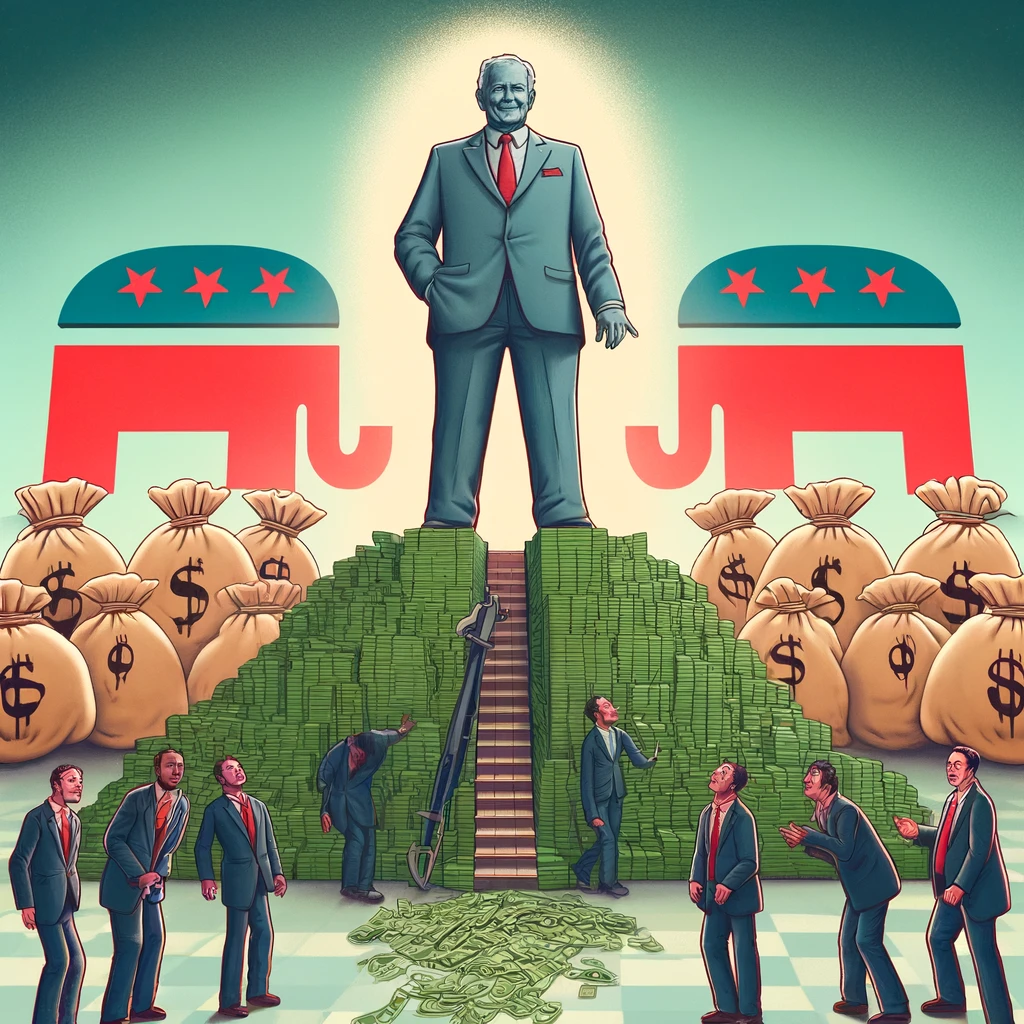
Republican Policies: Enriching the Top 1%
Republicans have long argued that weakening unions and promoting right-to-work laws would lead to economic growth and job creation. However, the opposite has been true for the average worker. As union membership has declined, corporate profits have surged, and the wealthiest 1% of Americans have captured a disproportionate share of that growth. States with lower union membership are not only seeing lower wages for workers but are also disproportionately benefiting the top 1%.
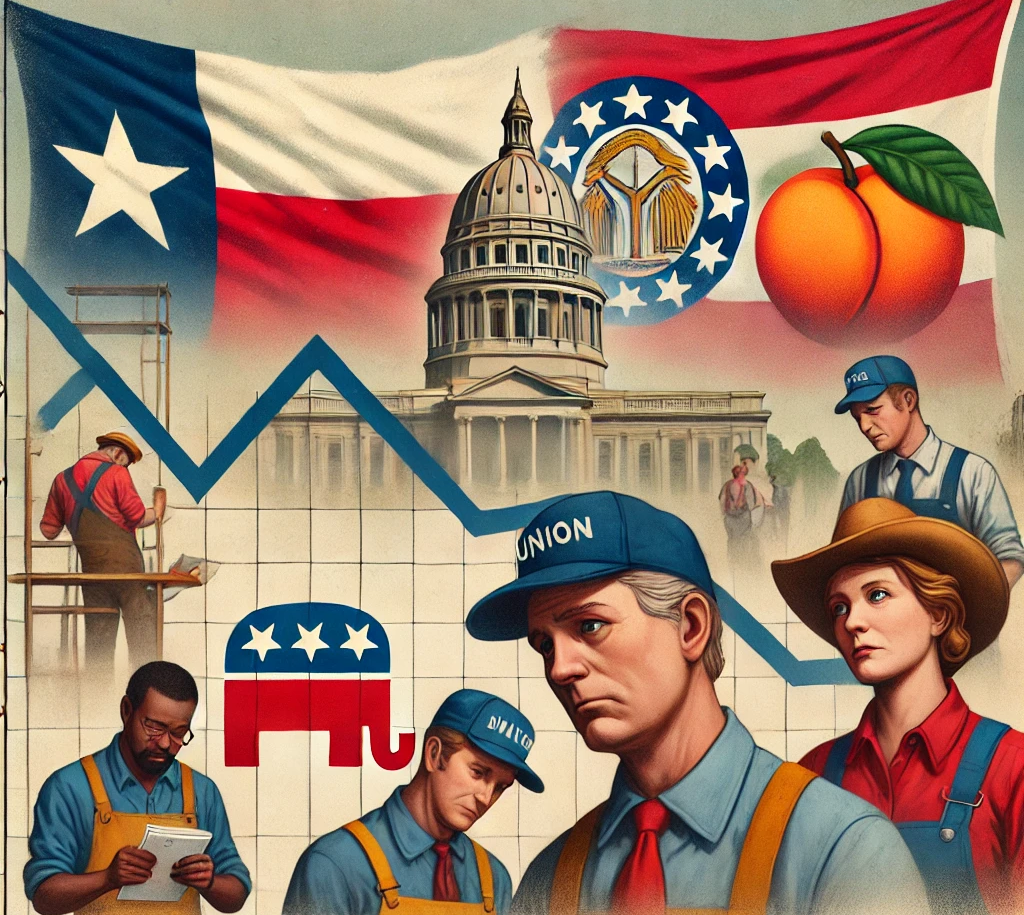
In Republican-led states like Texas, Georgia, and Florida, where unions are weak, wages remain stagnant even as corporate profits soar. The dismantling of unions has allowed corporations to prioritize executive pay and shareholder dividends over fair wages for workers. Meanwhile, in union-strong states, workers continue to fight for—and often win—better pay, benefits, and working conditions.

Boeing Strike: A Reflection of Broader Worker Dissatisfaction
The ongoing Boeing strike is a microcosm of this national trend. Workers are not just fighting for a higher paycheck—they are fighting for respect, dignity, and their rightful share of economic prosperity. With 95% of union members rejecting a deal that management touted as generous, it’s clear that workers feel undervalued. Boeing, like many corporations, has seen its profits rise while wages for its workers lag behind, a dynamic that is reflective of the broader economic structure promoted by Republican policies.
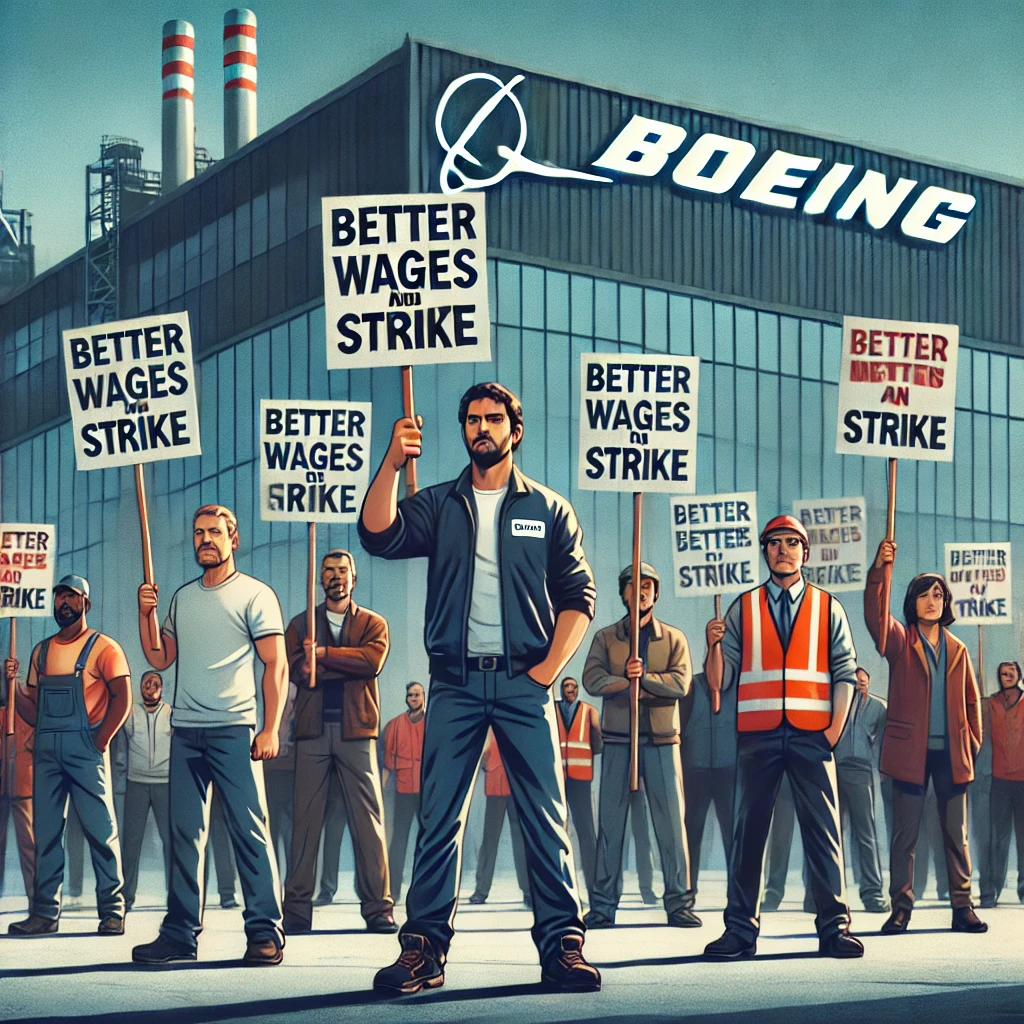
The workers’ rejection of Boeing’s proposed pay deal and their willingness to strike demonstrate the growing dissatisfaction among U.S. workers, especially as income inequality continues to widen. The strike is not just about pay; it’s about the broader erosion of labor rights and the systematic dismantling of unions, which has allowed corporations to amass unprecedented power and wealth at the expense of working Americans.
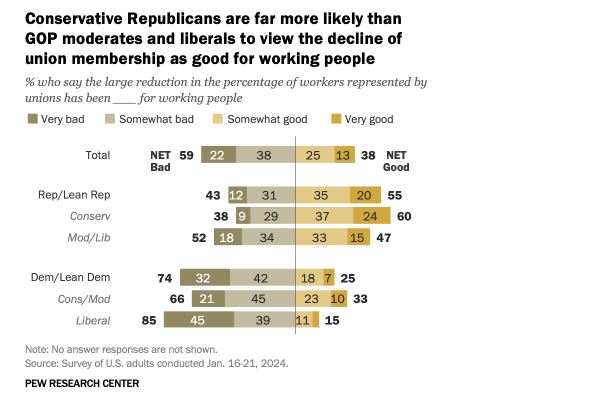
The Future of Unions in America
Public support for unions remains near a 60-year high, with 67% of Americans expressing approval, according to Gallup. Despite the GOP’s efforts to weaken unions, there is a growing recognition that collective bargaining is essential for ensuring fair wages and combating income inequality. However, the future of unions—and the American middle class—remains uncertain.






